I lay there on the cold table as the doctor hovered above me with an air of superiority etched across her face. The silence was deafening as she contemplated the defective nature that grew within my womb. The silence almost suffocated me as I struggled to breathe.
I remember her telling us that our baby had a stroke in utero, and suggesting that we could terminate the pregnancy. “You are young and healthy and won’t have any problems getting pregnant again,” I remember her saying.
My husband and I chose not to terminate but trusted that God’s will would be done in our child’s life. Thousands of people around the world prayed for our baby, and on Aug. 12, 2004, baby Lucas was lifted from my womb. He screamed with a hearty cry, and I wept in relief. My baby was alive, and that was the day I was inducted into the world of special needs parenting — although at the time I had no idea what that world was going to look like.
After a brain surgery at 2 days old, which was followed by 12 days in the NICU, we were handed little baby Lucas and discharged. I was amazed. We had gone from no hope to Here’s your baby! Good luck!
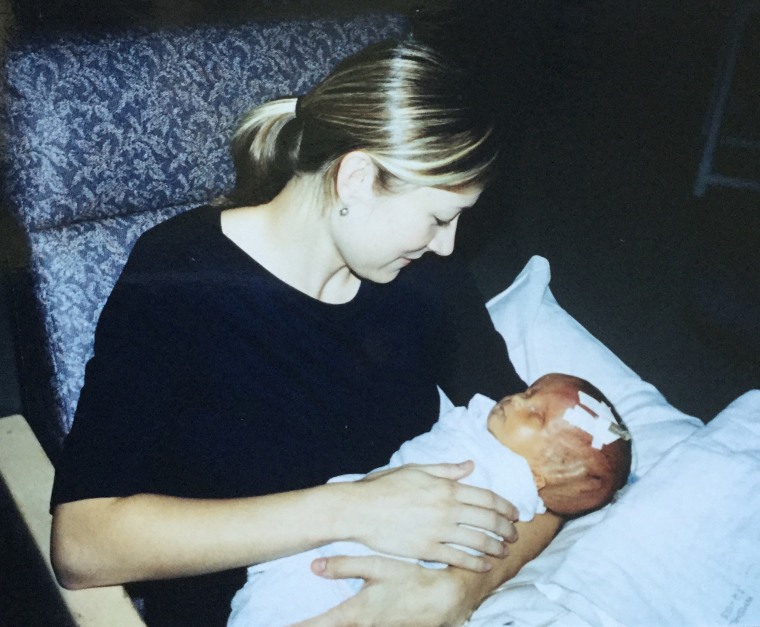
As we gently placed Lucas’s fragile body in the car seat, I looked at my son, my miracle baby, and promised him that I would one day help others in his honor. I knew I wanted to do something to help children with special needs.
The next few years were joyful but hard. Lucas never slept and no one could determine why. He was delayed in every area and cognitively below his peers. He also had another surgery in 2005 for a shunt repair. We lived in a constant state of exhaustion, but were excited to welcome a daughter in 2007. That’s when my husband began having health problems.
After numerous tests, it was determined that he had a brain tumor. The next few years were a blur with surgeries, treatments, the birth of another child and my husband’s eventual death, which left me as a young 33-year-old widow with four children under 6 — including my second oldest, Lucas, who had profound disabilities.
In 2011, I remarried a widower who had three children, and we had an eighth (and final) child together in 2015. We moved to rural Tennessee, where we lived the simple life — growing food, raising our children on 30 acres of land, and enjoying the vast beauty that the rural life offered.
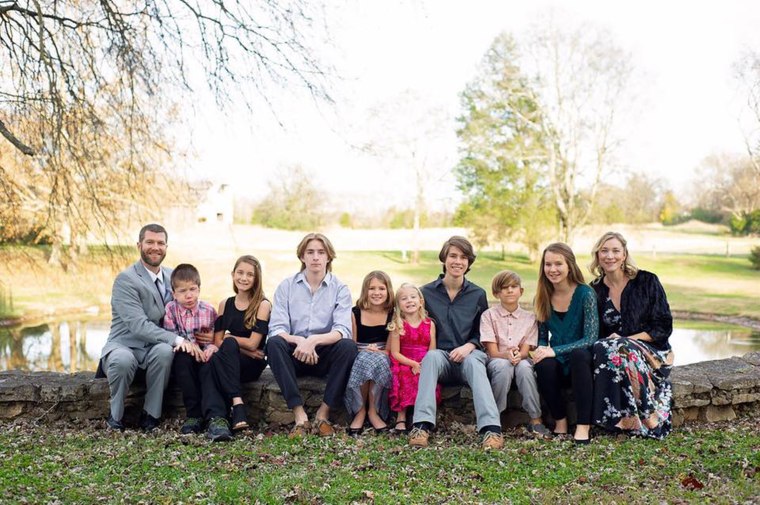
Then, in 2017, life didn’t feel so beautiful anymore. It felt really hard as Lucas aged and went through puberty. His behaviors intensified and so did the aggression. We sought out resources and support and couldn’t find anything. That’s when I remembered my promise to him, and I decided to start a nonprofit in his honor. It’s called The Lucas Project, and its aim is to help families with special needs.
My son has taught me more than anyone behind the pulpit ever has. He’s taught me to see people — not only to see them, but to do more.
I Googled “how to start a nonprofit” and got to work. I always assumed that the nonprofit would focus on helping children, but as we, as parents and caregivers, became desperate for a break, I realized that the nonprofit also needed to help caregivers with respite opportunities. We launched our first respite chapter in 2017, and it was a huge success. We then expanded our mission statement to include recognition as well, because awareness of the difficulties caregivers face can be the first step toward change. We often felt like people were willing to help — they just needed to realize and understand the need. This led to essays, a podcast called “Coffee with Caregivers” and a documentary called “Unseen: How We’re Failing Parent Caregivers and Why It Matters.”
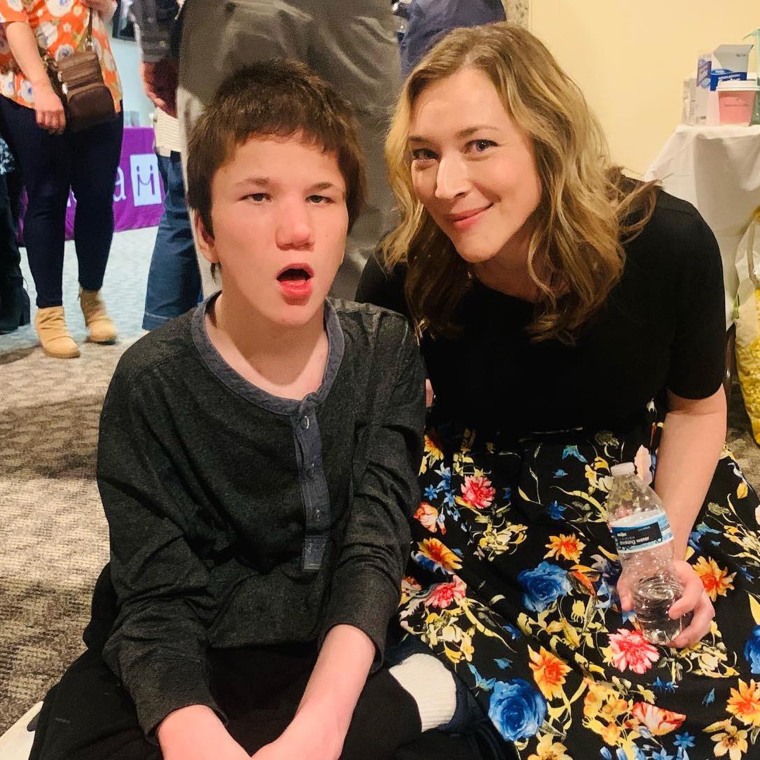
As time progressed, we moved away from rural Tennessee in search of more resources and support, which led us back to my hometown in Michigan, where Lucas recently celebrated his 18th birthday. This is when everything changed again. Now that Lucas was officially an adult, we realized how few long-term assisted living facilities were available for profoundly disabled individuals who would require 24/7 care for the rest of their lives. This is not just our reality; thousands are on waiting lists for assisted living.
Adults with intellectual and developmental disabilities often are placed in long-term housing when their parents die or become terminally ill. Imagine the trauma of losing a beloved caregiver and then being forced to leave the only home you’ve ever known. Imagine how confusing it would be to be transported hours away to a facility that may be poorly regulated and may offer limited care. It’s not an ideal scenario — so, we expanded our mission statement at The Lucas Project once again. We decided that, in addition to providing respite and recognition, we also would offer residential support to special needs families.
My husband and I recently closed on our first property due to the generosity of an anonymous investor who offered to front the money for a short-term loan. We’ve affectionately named the property Hope Farm, and it will provide housing and long-term care for six disabled adults — hopefully by next summer if we can maneuver through the bureaucratic red tape, which can be overwhelming with Medicaid dollars involved! We also hope to turn the big white barn on the property into a respite center. Our desire is to offer weekend and after-school care to the special needs community in West Michigan. It’s a beautiful property full of potential, but it needs a lot of work! But — it won’t be the hardest thing we’ve ever accomplished, and we have faith in the generosity of humanity to help us through.
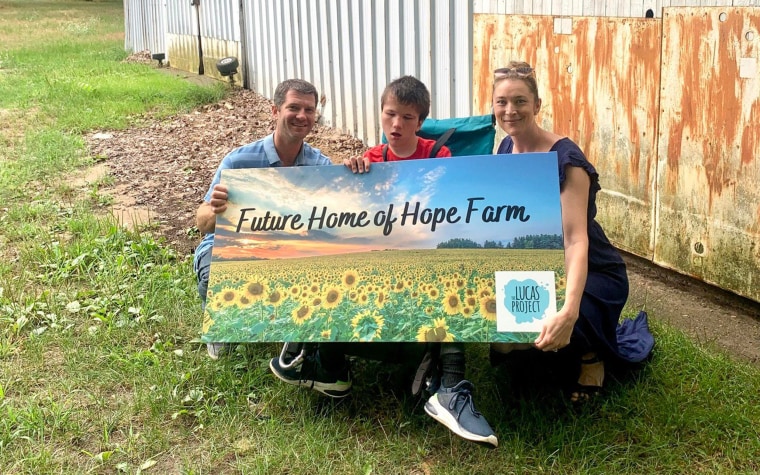
Raising Lucas has been one of the greatest joys of my life. He has taught me more than anyone behind the pulpit ever has. He’s taught me to see people — not only to see them, but to do more. To help and to reach out where I’m able to.
Maya Angelou once said, “If it is true that a chain is only as strong as its weakest link, isn’t it also true a society is only as healthy as its sickest citizen?” It’s time for society to see not only the disabled individuals who will need lifelong care but to see their caregivers as well. By providing beautiful long-term housing options, we are not only serving the individuals who will reside in these spaces, but we are serving their aging caregivers by allowing them to live their lives free of the restraints of raising a forever dependent. Please see these families within your communities and then do more than just see — offer something tangible to strengthen the link.
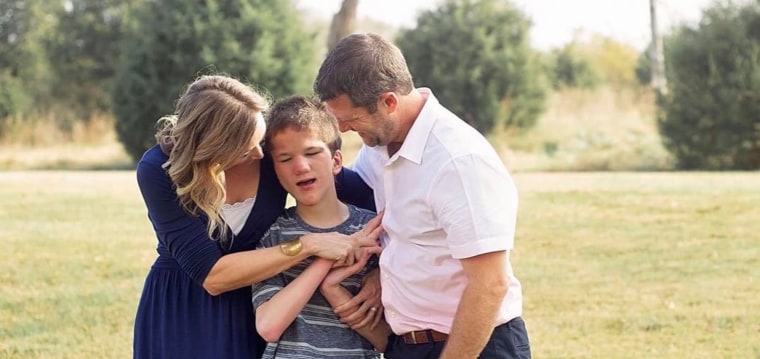
Jessica Ronne is an author, speaker, podcast host, documentary producer and caregiver advocate. She is the founder and executive director of The Lucas Project, a nonprofit dedicated to providing recognition, respite and residential support for special needs families. She and her husband Ryan live in Michigan with their eight children, including their son, Lucas, who has profound disabilities. To follow the ongoing saga, visit JessPlusTheMess.com.
Related video: